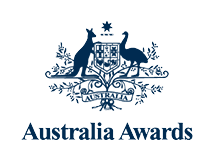Disability fuels young Filipina leader’s drive to succeed
Born prematurely at only five months and three weeks old, Nastassja Ramos’ childhood life was marked with pain and difficulty. Her difficult birth led to complications that left her a spastic diplegic — a condition where cerebral palsy only affects the lower extremities. She has spent most of her life using crutches for mobility.
Still, Tassja, as she is fondly called, refused to be hindered by her physical limitations. She is an avid traveler and was a high achiever in school. Her love of exploring new things and her passion for excellence motivated her to apply for an Australian Government scholarship.
In 2011, Tassja was granted an Australia Awards-Australian Leadership Award scholarship to Monash University in Melbourne to take up a double masters’ degree in Journalism and International Relations.
“My personal research points me to Australia as the best in First World education. There I can hone my skills as a journalist, and develop other skills necessary for me to fulfil my dream of helping the ‘differently-abled’ in our midst,” Tassja said.
Tassja dreams of helping make the Philippines more PWD-friendly; like Singapore and other countries that have provided PWDs with services and a policy environment suited to their unique needs. Australia is also among the few countries with a National Disability Strategy that effectively integrates its PWDs into the mainstream of society. Tassja hopes to learn how to make all these possible, through her re-entry action plan (REAP), when she returns to the Philippines in 2013 to continue her advocacy.
The Re-Entry Action Plan is a unique feature of Australian Government scholarships in the Philippines – it ensures that the returning scholars will be able to apply what they learned in Australia and contribute to development in the Philippines; it is a way of giving back Filipino communities.
“I have always lived my life to the fullest. I want our disabled fellowmen to live fully, too. Being in the study of media and communications, I could be an instrument for our country to be more conscious of our needs, and accord us the respect and recognition as citizens who can contribute to national progress,” she said.
Tassja (3rd from left) with former Australian Ambassador to the Philippines, Rod Smith (center) and her fellow Australia Awards leadership scholars.
| Back to Featured stories |
|---|

